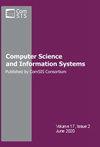识别和引导商业图书馆和数据图书馆的当前趋势
IF 1.2
4区 计算机科学
Q4 COMPUTER SCIENCE, INFORMATION SYSTEMS
引用次数: 0
摘要
商业图书馆和数据图书馆的这些趋势对当今学术图书馆的管理很重要,讨论这个话题很重要,因为图书馆员必须对数据科学和大数据的发展做出反应。联想首席执行官杨元庆等行业领袖提到了“新IT”,以及智能设备、边缘和云计算、5G网络和人工智能(AI)的使用带来的即将到来的革命(联想,2022年)。联想(2022)的研究人员对来自不同行业的500名首席技术官(cto)进行了一项研究,以确定他们对未来技术的看法。学者和行业领袖都一致认为,将占据主导地位的技术将被锻造,以便人类能够应对未来的挑战,而信息的控制将处于这些变化的最前沿。信息专业人员必须学习并掌握行业领导者重新构想的技术,这些技术将试图改善我们的生活,因为图书馆业正变得越来越受数据驱动。教职员工和学生依靠信息专业人员来帮助他们理解“新IT”的角色和它所创造的机会。我们还需要更多见多识广的专业人士,因为研究是数据驱动的。越来越多的决策者正在使用大数据来做出有效的组织决策。图书馆员必须认识到控制技术创新的趋势,以便有效地为关键利益相关者提供信息服务。本文章由计算机程序翻译,如有差异,请以英文原文为准。
Identifying and Navigating the Current Trends in Business Librarianship and Data Librarianship
These trends in business librarianship and data librarianship matter for the management of today’s academic libraries and this topic is important to discuss because librarians must respond to the developments in data science and big data. Industry leaders such as Yuanqing Yango, CEO of Lenovo refer to “new IT” and the coming revolution stemming from the usage of smart devices, edge and cloud computing, 5G networks, and (AI) Artificial Intelligence (Lenovo, 2022). Lenovo (2022) researchers undertook a study of 500 Chief Technology Officers (CTOs)from diverse industries to ascertain their perceptions about the future of technology. Both scholars and industry leaders alike agree that the technologies that will dominate will be forged so that humanity can meet the challenges of the future and the control of information will be at the forefront of these changes. Information professionals must learn about and master the technologies that industry leaders are reimagining as innovations that will try to improve our lives because librarianship is becoming increasingly data-driven. Faculty, staff, and students rely on information professionals to help them to understand the role of “new IT” and the opportunities that it creates. We also need more informed professionals because research is data-driven. More decision makers are using big data to make effective organizational decisions. Librarians must be cognizant of the trends that are governing innovations in technology to effectively provide information services to key stakeholders.
求助全文
通过发布文献求助,成功后即可免费获取论文全文。
去求助
来源期刊

Computer Science and Information Systems
COMPUTER SCIENCE, INFORMATION SYSTEMS-COMPUTER SCIENCE, SOFTWARE ENGINEERING
CiteScore
2.30
自引率
21.40%
发文量
76
审稿时长
7.5 months
期刊介绍:
About the journal
Home page
Contact information
Aims and scope
Indexing information
Editorial policies
ComSIS consortium
Journal boards
Managing board
For authors
Information for contributors
Paper submission
Article submission through OJS
Copyright transfer form
Download section
For readers
Forthcoming articles
Current issue
Archive
Subscription
For reviewers
View and review submissions
News
Journal''s Facebook page
Call for special issue
New issue notification
Aims and scope
Computer Science and Information Systems (ComSIS) is an international refereed journal, published in Serbia. The objective of ComSIS is to communicate important research and development results in the areas of computer science, software engineering, and information systems.
 求助内容:
求助内容: 应助结果提醒方式:
应助结果提醒方式:


